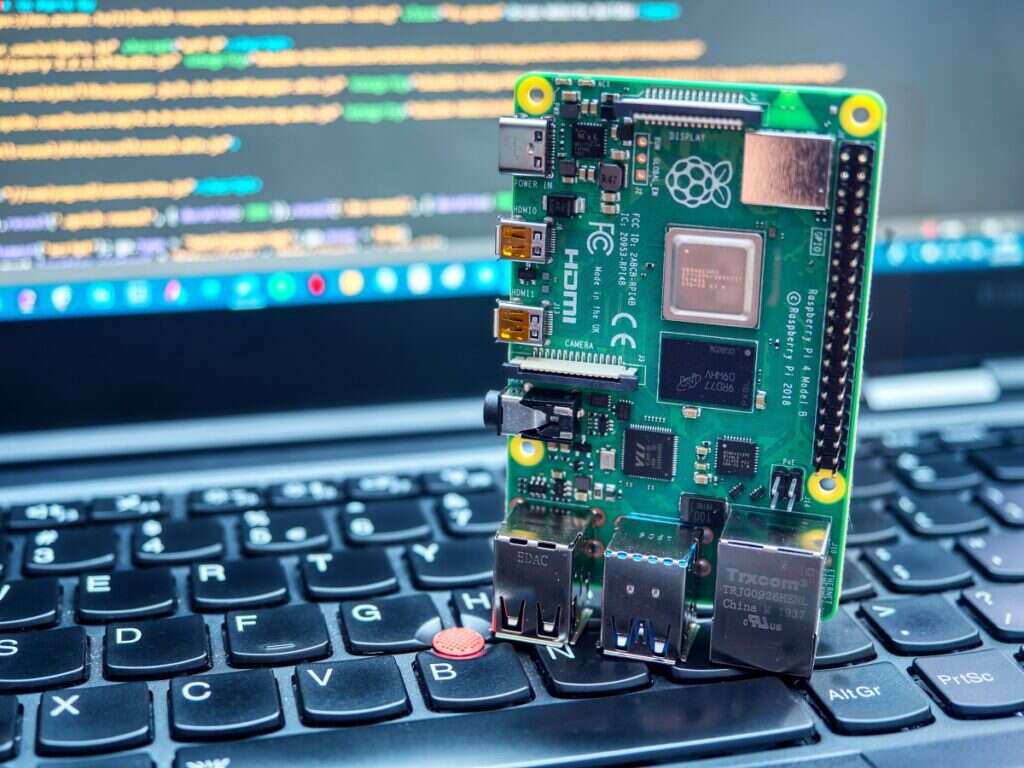
Chipmaker Arm has taken a minority stake in Raspberry Pi, the UK-based manufacturer of popular single-board computers. The deal will see the companies work together to develop new internet of things (IoT) and edge computing devices.

Both based in Cambridge, Arm and Raspberry Pi have been working together since 2008, and say the undisclosed investment from Arm will help strengthen this partnership.
Why Arm is grabbing a slice of Raspberry Pi
Raspberry Pi’s low-cost machines were initially designed to help people learn to code and to build interest in computer science. Small and lightweight, but packing considerable processing power (the latest model, the Raspberry Pi 5, features a quad-core 64-bit Arm Cortex-A76 chipset), it soon gained popularity beyond its initial target market, and is now widely used in industrial settings, particularly in IoT devices.
According to the company’s most recent annual report, it has shipped nearly 50 million devices since the launch of the first Raspberry Pi in 2012.
Paul Williamson, SVP and general manager for the IoT line of business at Arm, said the companies “share a vision to make computing accessible for all, by lowering barriers to innovation so that anyone, anywhere can learn, experience and create new IoT solutions”.
He added: “With the rapid growth of edge and endpoint AI applications, platforms like those from Raspberry Pi, built on Arm, are critical to driving the adoption of high-performance IoT devices globally by enabling developers to innovate faster and more easily. This strategic investment is further proof of our continued commitment to the developer community and to our partnership with Raspberry Pi.”
It is the second significant investment Raspberry Pi has taken this, following a cash injection from Sony, one of its key suppliers. Though the value of this funding was not revealed at the time, Raspberry Pi’s annual report says it was worth £4.2m.
Eben Upton, CEO of Raspberry Pi, said: “Arm technology has always been central to the platforms we create, and this investment is an important milestone in our longstanding partnership.
“Using Arm technology as the foundation of our current and future products offers us access to the compute performance, energy efficiency and extensive software ecosystem we need, as we continue to remove barriers to entry for everyone, from students and enthusiasts to professional developers deploying commercial IoT systems at scale.”
RISC-V presents IoT competition for Arm
Arm is flush with cash following its September IPO, which saw the company raise over $5bn when it listed on New York’s Nasdaq market following seven years of private ownership by SoftBank.
The chipmaker’s designs have long ruled the roost in mobile and IoT devices thanks to their low power consumption, but it faces increasing competition from RISC-V, an alternative open-source instruction set which is gaining popularity with tech vendors.
Earlier this year a group of tech companies, including long-term Arm customers such as Qualcomm, launched a RISC-V Software Ecosystem, known as RISE, to help accelerate the development of programmes to support RISC-V-based semiconductors. Qualcomm is also part of a consortium, led by European chipmakers, which is investing in a new company that will develop and produce RISC-V hardware.
Speaking to Tech Monitor in September, Albie Amankona, analyst at Third Bridge, said the rise of RISC-V meant Arm should be focusing on leading-edge chip designs, based on its Neoverse series cores, rather than low-end embedded devices for use cases like IoT.
Amankona said: “RISC-V is already making inroads in mid- and low-end applications, such as the embedded market, including automotive. It seems inevitable that Android and Microsoft will eventually embrace RISC-V, as it offers them the opportunity to lower overall costs & maintain or even improve performance.”






